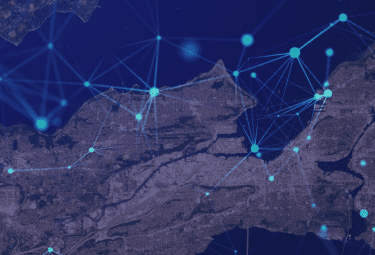Innovation to Impact. See you at the July ESIP Meeting.
Information Quality Matters for FAIR Data

A new Earth science data stewardship paper is out, led by our Information Quality and Semantic Harmonization Clusters, E2SIP, other ESIP volunteers, and several ESIP partners. Check out “Harmonizing quality measures of FAIRness assessment towards machine-actionable quality information” in the International Journal of Digital Earth.
What we do: Bring together people from various disciplines to assess and build frameworks for dataset quality of Earth science data and information.
Why we do it: Baseline standards foster collaboration across agencies and international organizations to improve climate change studies and Earth science applications.
A new publication has emerged from another successful international collaboration within the ESIP community.
This collaboration involved active ESIP members from the Information Quality Cluster, including Ge Peng, Robert R. Downs, Hampapuram K. Ramapriyan and Zhong Liu, plus Gary Berg-Cross from the Semantic Harmonization Cluster as well as Mingfang Wu and Lesley Wyborn from E2SIP. In addition, other ESIP Partners and volunteers contributed, including Sudhir R. Shrestha and, Nancy Ritchey from NOAA, Jeanette Clark from the National Center for Ecological Analysis and Synthesis (NCEAS) along with Jenny Wood and Abdelhak Marouane from the University of Alabama in Huntsville
Titled “Harmonizing Quality Measures of FAIRness Assessment Towards Machine-Actionable Quality Information,” the paper came out in the International Journal of Digital Earth of Taylor & Francis for a special collection Advance in FAIR Geospatial Information Resources.
The content consolidates the essential findable, accessible, interoperable, and reusable (FAIR) vocabulary to harmonize FAIRness assessment and reporting. It demonstrates the multi-dimensional, faceted and layered nature of the FAIR Principles and introduces a maturity matrix to address the complexity of implementation across disciplines. This is timely as achieving machine-actionable FAIR data becomes more important in global research, especially for artificial intelligence (AI) and machine learning (ML).
“Information quality includes both data and metadata quality,” said Peng, the paper’s lead author and an at-large member of the ESIP Board as well as a co-chair of the Information Quality Cluster. She adds that ensuring and sharing high quality information is crucial for the effective use of data across many applications, going beyond disciplinary and geographic boundaries. “ESIP offers a neutral, safe and collaborative environment where global data professionals from diverse domains can come together to address shared challenges, such as enhancing the accessibility and usability of data and information.”
The Information Quality Cluster and Semantic Harmonization Clusters’ work seeks to address some of these challenges. They have two complementary goals. First, to provide a framework for implementing the FAIR Principles in a holistic and systematic way. Second, to do so while consistently evaluating and reporting the level of FAIR compliance (or FAIRness) of Earth science data products.
Join the conversation by participating in one of the monthly calls via the ESIP Community Calendar or catch their next breakout session at the ESIP Meeting.
This blog was written by Ge Peng and Allison Mills with edits from Robert R. Downs.
ESIP stands for Earth Science Information Partners and is a community of partner organizations and volunteers. We work together to meet environmental data challenges and look for opportunities to expand, improve, and innovate across Earth science disciplines.Learn more esipfed.org/get-involved and sign up for the weekly ESIP Update for #EarthScienceData events, funding, webinars and ESIP announcements.



